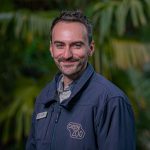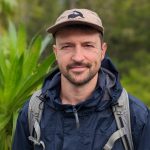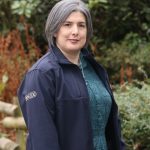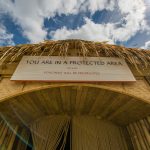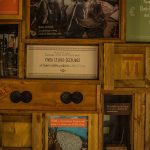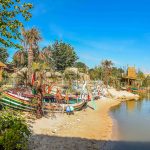Partners and collaborators
UNDERSTANDING OUR INFLUENCE
Better connecting people with nature and the issues it faces, is amongst the most critical achievements we must make if we’re to reverse wildlife decline.
An astounding 700 million visits are made to zoos around the world each year. The reasons for these visits are varied, but zoos themselves have the power to influence visitor attitudes and behaviours. As a conservation zoo, our diverse team and skill set aims to equip people with the motivation, tools and knowledge to take wildlife conservation, into their own hands.
In 2014/15, our Lead Social Scientist Andy Moss, and Warwick University’s Eric Jensen, conducted the largest ever impact study of zoo education programmes on visitor knowledge. By tapping into the WAZA (World Association of Zoos and Aquariums) network, 5,661 visitors, attending 26 zoos/aquariams, in 19 countries, produced compelling evidence that zoo visits contribute to increased knowledge of biodiversity issues, and the actions that visitors can take to protect biodiversity.
REFINING our approach
Aware of our potential to influence visitor attitudes towards nature, and to make positive changes, we’ve been experimenting and refining our methodology, for half a decade. Our Island’s campaign is a great example of how we put our theory, to the test. In 2015, we opened the gates to our 15 acre Island’s expedition, an immersive tropical environment reflective of the landscapes in South East Asia. Since then, our Interpretation and Exhibition team have been working, with the support of social scientists and educators, to connect thematic areas of Islands, with pro-conservation behaviours. The messaging across the site is diverse, from how to spot and report wildlife crime, to exploring new recipes using sustainable palm oil products, to sourcing sustainable FSC certified wood, when working on a DIY project or considering a contractor.
The zoo’s exhibition messaging, which can be seen across our 128 acre site, is balanced by the crafted storytelling of our Conservation Education & Engagement team. They incorporate biodiversity issues and the many ways to help solve them, into their programme of routine visitor engagement activities, special events and school outreach programmes, to ensure key conservation messages are delivered consistently, and in an engaging way.
MEASURING IMPACT
The greatest challenge we face in our mission to change visitor behaviour, is evaluation. Behaviour change campaigns are difficult to assess, However over the coming years, we’ll be working to better understand the barriers within society that make sustainable behaviours, inaccessible for some, whilst innovating our methods to track changes in behaviour, over time.
With our growing knowledge and expertise in this area, our goal is to reach out to friends and partners around the world, to support as many campaigns as we can, applying the insight we have, to increase awareness of biodiversity issues and empower sustainable actions.
ZOO EDUCATION
We’re a long-standing supporter of the Action Indonesia Global Species Management Plan, a collection of conservationists working to conserve anoa, banteng and babirusa. The programme’s ‘zoo education’ component, connects zoos around the world in raising awareness of GSMP species amongst their visitors. One example of this united approach, is the annual ‘Action Indonesia day’, which focuses on these lesser known species, by highlighting the threats they face in the wild and what we can do to help them.
Our Education expertise built at Chester Zoo, are being shared with the HUTAN Education Awareness Programme (HEAP) in Borneo, teaching the next generation about deforestation and solutions, ranging from sustainable commodities to building wildlife corridors. It is this next generation, that will become the ambassadors for a better, more sustainable world.
With each person we engage with, at Chester Zoo or through our global partnerships, we are closer to achieving our mission to prevent extinction.
READ MORE OF OUR RESEARCH
